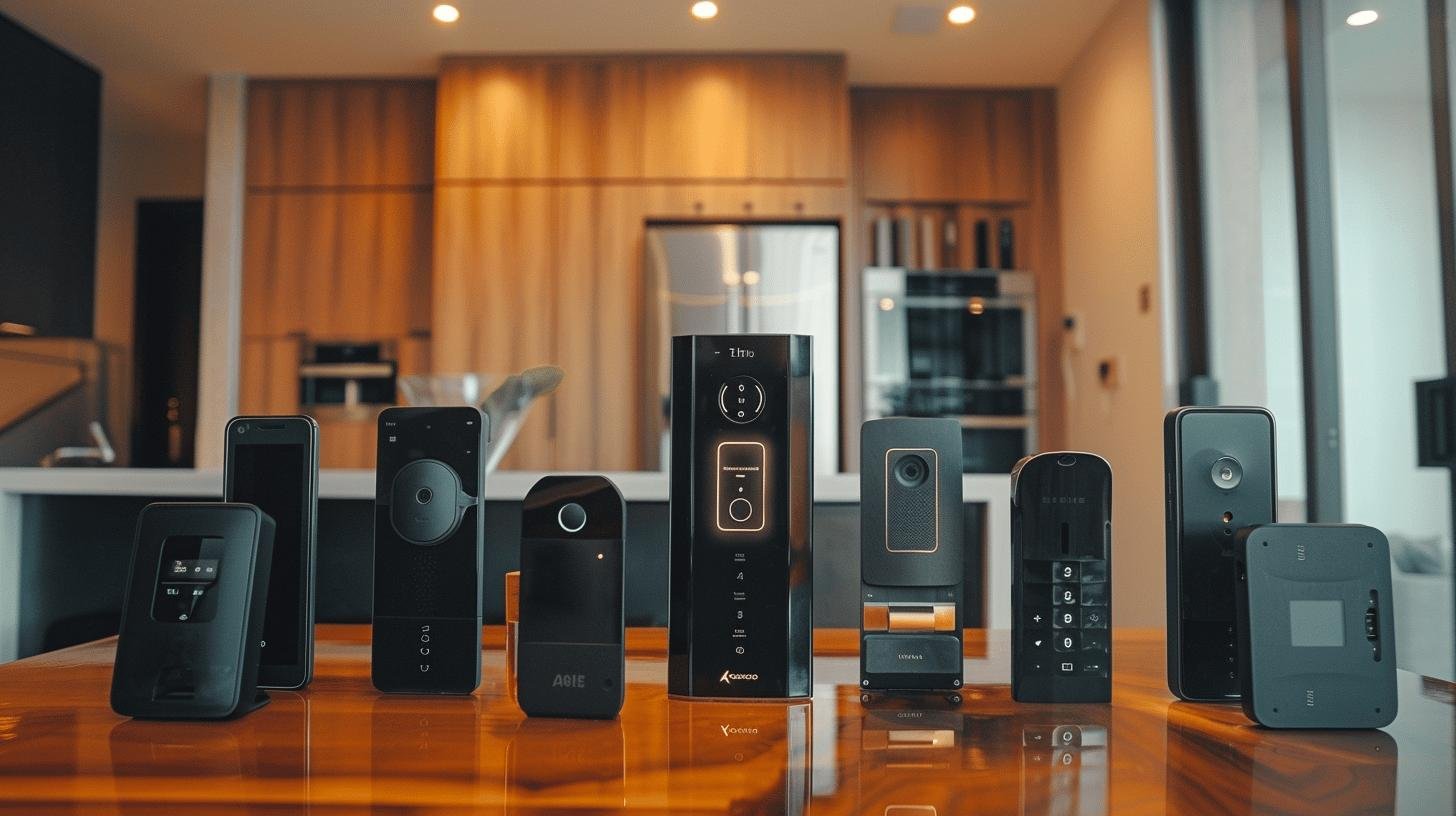Is your next renovation project demanding a large bulk purchase of door hardware? Before diving headfirst into transactions, it’s crucial to understand the intricate cost-saving mechanisms that bulk buying offers. Suppliers often provide significant discounts for larger orders, potentially making a substantial impact on your budget. This article will walk you through the practical strategies of evaluating total costs and optimizing your expenditure, ensuring that your investment aligns with both quality and reliability. Unlock the key to cost-efficient renovations by mastering the essentials of bulk buying in the hardware industry.
Cost Analysis and Savings in Bulk Purchasing of Door Hardware
Purchasing door hardware in bulk can lead to substantial cost savings. Suppliers often provide discounts for large quantity orders, which can significantly reduce the per-unit cost. A key strategy for achieving these savings includes negotiating with suppliers for better pricing and terms. Bulk buying also offers the advantage of consistent quality across all hardware pieces, essential for maintaining uniformity in design and functionality. By buying in bulk, businesses can optimize their expenditure, ensuring that the total costs align with their financial goals. Evaluating total costs involves considering not only the initial purchase price but also long-term maintenance and potential replacement costs.
- Material: The type of material used, such as brass or stainless steel, influences the cost.
- Design Complexity: Intricately designed hardware generally costs more due to the detail involved.
- Finish: Finishes like polished, satin, or antique can vary in price and impact aesthetic appeal.
- Brand Reputation: Well-known brands may command higher prices due to perceived quality.
- Market Demand: High-demand items might be priced higher, affecting budget planning.
Setting a realistic budget is crucial when planning a bulk purchase of door hardware. It is recommended to allocate 5-10% of the total interior design budget to door hardware. This allocation ensures that quality is not compromised for cost. Awareness of potential hidden costs, such as shipping, installation, and taxes, is essential for accurate budgeting. Factoring in these additional expenses can prevent unforeseen financial strain and help maintain the project’s overall budget integrity.
Ensuring Supplier Reliability and Product Quality

Reliable suppliers play a critical role in the success of bulk purchases. Ensuring supplier reliability involves researching and assessing their credibility. To determine a supplier’s trustworthiness, start by reviewing their track record and customer feedback. Check industry certifications and affiliations, as these indicate adherence to quality standards. Engaging with suppliers who have a solid reputation for delivering consistent quality can prevent future issues and ensure uniformity in design and functionality. A trusted supplier, such as those known for their high-quality products and service excellence, is a crucial partner in bulk purchasing.
Quality assurance in door hardware is essential for long-lasting performance and reliability. High-quality door handles, for example, should include a minimum of a 10-year mechanical warranty. This warranty signifies the manufacturer’s confidence in the product’s durability and functionality. Before finalizing a bulk purchase, verify the warranty terms and understand the coverage provided. Quality assurance practices should include rigorous testing and inspection processes to ensure all hardware pieces meet industry standards. Look for suppliers that offer comprehensive quality control documentation as part of their service.
| Brand | Reliability Score | Warranty Period |
|---|---|---|
| Xiongjin Hardware | 9.5 | 10 Years |
| Starlight Hardware | 9.0 | 12 Years |
| SecureLock Co. | 8.8 | 10 Years |
Among reliable suppliers, Starlight Hardware stands out for its commitment to quality and customer satisfaction. Known for its robust warranty periods and high reliability scores, Starlight Hardware offers a range of products that meet stringent quality criteria. Their dedication to excellence is reflected in the extensive testing each product undergoes before reaching the market. Partnering with such a supplier ensures access to high-quality door hardware that aligns with project requirements and offers peace of mind through comprehensive support and warranty coverage.
Types of Door Hardware and Compatibility Considerations
Choosing the right door hardware requires careful consideration of compatibility with existing systems. This ensures that the new hardware functions correctly and integrates seamlessly with current components. Particularly in retrofitting projects, compatibility is essential to avoid costly modifications. Additionally, understanding the different types of door hardware available can guide decisions based on functionality, style, and budget.
Handles
Door handles come in various styles, including lever handles, knob handles, and pull handles. Lever handles offer easy operation, making them ideal for accessibility purposes. Knob handles provide a classic look and require a twist action to operate. Pull handles are often used for sliding doors or large entryways. When selecting handles, it is important to consider the compatibility with door thickness and existing latch types. Ensuring that the handle fits the pre-drilled holes can save time and resources during installation.
Locks
Locks are crucial for security and privacy. Common types include deadbolts, mortise locks, and electronic locks. Deadbolts offer high security for exterior doors due to their robust locking mechanism. Mortise locks, often used in commercial settings, provide a combination of latch and deadbolt features. Electronic locks offer keyless entry, enhancing convenience and security with features such as remote access and programmable codes. Compatibility with door material and thickness is key, as well as ensuring that the lock mechanism aligns with pre-existing strike plates.
Hinges
Hinges are vital for the door’s movement and stability. They come in various forms, including butt hinges, continuous hinges, and pivot hinges. Butt hinges are the most common, suitable for standard doors. Continuous hinges, or piano hinges, provide full-length support, ideal for heavy or high-traffic doors. Pivot hinges allow doors to swing in both directions, often used in modern and commercial spaces. Selecting hinges requires considering the door’s weight, thickness, and the frequency of use to maintain functionality and durability.
Matching door hardware to decor can significantly enhance the aesthetic appeal of a space. Popular finishes such as Satin Brass and Matt Black can complement various interior styles, from traditional to contemporary. Materials like brass, stainless steel, and bronze not only determine the hardware’s appearance but also influence its cost and durability. Choosing the right finish and material ensures that the hardware not only fits the budget but also aligns with the overall design vision.
Negotiation and Customization Options for Bulk Orders

Negotiating terms with suppliers is a crucial aspect of making large bulk purchases of door hardware. What are the benefits of negotiating with suppliers? The primary advantage is cost efficiency, as suppliers often offer discounts for high-volume orders. Additionally, negotiations can lead to more favorable terms, such as extended warranties and flexible return policies, which provide long-term value and security. Engaging in open communication with suppliers can also facilitate a better understanding of each party’s needs, paving the way for mutually beneficial agreements. Building a strong relationship with suppliers can result in ongoing benefits, including priority service and access to exclusive products.
- Design Specifications: Customize specific hardware designs to align with project aesthetics.
- Material Selection: Choose from a range of materials to meet durability and budgetary needs.
- Finish Options: Select finishes that complement the overall design scheme, enhancing visual appeal.
- Special Features: Incorporate features like smart technology or enhanced security mechanisms.
- Packaging and Branding: Customize packaging with branding elements for a cohesive presentation.
Planning and preparing for negotiations can significantly impact the outcomes of bulk order discussions. How can you effectively prepare for negotiations? Start by conducting thorough research on market prices, supplier backgrounds, and industry standards to inform your negotiation strategy. Clearly define your requirements and priorities, which can guide discussions and help identify areas where flexibility is possible. Establishing a clear budget and understanding the total cost implications, including hidden costs, is essential. Being prepared to make trade-offs and concessions can facilitate a collaborative negotiation process, ultimately leading to a successful agreement that meets both parties’ needs.
Logistics and Delivery Considerations for Bulk Purchases
Efficient logistics and tracking systems are paramount when making large bulk purchases of door hardware. Effective delivery logistics minimize the frequency of reordering, thereby saving time and reducing logistical complexities. Reliable tracking systems allow businesses to monitor the status of their orders in real-time, ensuring that any potential issues can be identified and addressed promptly. The availability of stock is a crucial factor that can influence lead times and affect the overall delivery schedule. Having a robust logistics plan in place can streamline the entire process, ensuring that products are delivered on time and meet project deadlines.
- Lead Times: Understanding lead times helps in scheduling purchases to align with project timelines.
- Stock Availability: Ensures that the desired products are in stock to prevent delays.
- Transportation Options: Evaluate different shipping methods for cost efficiency and speed.
- Supplier Communication: Maintain clear communication with suppliers to stay updated on order status.
When managing order tracking and ensuring timely delivery, it is essential to establish a system that allows easy access to all tracking information. Utilizing technology solutions such as order management software can provide real-time updates and alerts for any changes in delivery schedules. It is beneficial to maintain regular communication with suppliers to confirm stock levels and address any discrepancies immediately. By implementing these strategies, businesses can ensure that their bulk purchases of door hardware arrive on schedule and meet their required specifications.
Evaluating Warranty and Return Policies

Warranties are a crucial component of any bulk purchase of door hardware, as they provide assurance of product quality and durability. A high-quality door handle should ideally come with at least a 10-year mechanical warranty. This coverage not only reflects the manufacturer’s confidence in their product but also offers peace of mind to the buyer regarding long-term performance. When evaluating warranty options, it is important to scrutinize the specifics of what is covered, including mechanical failures, finish durability, and possible exclusions. A comprehensive warranty can reduce the risk of unforeseen expenses and ensure that the hardware withstands wear over time.
Negotiating return policies and securing favorable post-purchase support are equally important when making a large bulk purchase. Flexible return policies can often be arranged with suppliers, particularly when negotiating large orders. These policies should allow for the return or exchange of defective or unsuitable products without significant hassle or cost. It is advisable to clearly outline and agree upon the terms of returns during the negotiation phase. In addition, securing robust post-purchase support from suppliers can facilitate efficient resolution of any issues that arise, ensuring that the hardware purchase remains a sound investment.
Final Words
Understanding what to know before making a large bulk purchase of door hardware can greatly impact both project quality and budget efficiency. This article has explored critical aspects, including cost analysis, supplier reliability, types of door hardware, negotiation strategies, logistics, and warranty evaluations. These components collectively help in making informed purchasing decisions that align with design needs and financial goals. By considering all these elements, buyers can not only achieve significant savings but also ensure the durability and functionality of their door hardware selections. Adopting these strategies promises a successful, cost-effective investment in door hardware.
FAQ
What are considerations in the selection of door hardware?
Selecting door hardware involves evaluating factors such as functionality, security level, aesthetics, material durability, and budget. Understanding the specific needs of the space and user preferences can guide a beneficial choice.
Is expensive door hardware worth it?
Expensive door hardware often offers enhanced durability, aesthetic appeal, and advanced security features. This investment can result in long-term cost savings and improved property value.
What is the trend in door knobs in 2024?
The trend in 2024 for door knobs includes minimalist designs, sustainable materials, and finishes like matte black or satin brass. Smart integration for enhanced security is also gaining popularity.
What are the levels of door hardware?
Door hardware levels typically range from basic, standard, to premium. Each level varies in terms of material quality, design complexity, and additional security features, determining both functionality and cost.
What types of door hardware should be considered?
Key types of door hardware include handles, locks, hinges, and knobs. Compatibility with existing systems and decor is crucial for ensuring functional and aesthetic cohesiveness.





